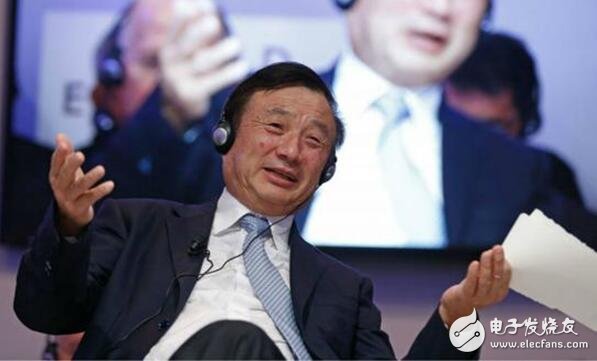Recently, the battlefield of artificial intelligence has become more heated! Both Samsung and Huawei have joined the war of artificial intelligence! As a communications giant, Huawei has gradually extended its industry to smart phones. Not only has its domestic brands been firmly established, but it has also achieved good results overseas. Some time ago, there was a very interesting data report on the Internet. A data survey was conducted on the theme of "Which Chinese do not need to change the phone?" Although it is only a hypothesis, it also comes from the side of the real reaction consumer buying psychology. In this survey report, 46.4% of “users who have never bought an iPhone†said that they would consider purchasing after the iPhone price cut 15%, which shows that the brand influence is still considerable. However, for those who "escape the iPhone", 25% of users will prefer to purchase Huawei phones. Other mobile phones will be considered later, and the second to fifth places are Samsung, Xiaomi, vivo and OPPO. In the same way, overseas Huawei has also achieved good results. At that time, Huawei P9 held a new product launch conference in the UK. Many foreign media released their views against Huawei P9 at this conference. The British authoritative media "Guardian" believes that Huawei's latest P9 and P9 PLUS phones will only pose a threat to Apple's iPhone and Samsung's Galaxy series. The US authoritative media "Wall Street Journal" also holds the same view, even more directly claiming that Huawei is the world's third-largest smartphone manufacturer. Many foreign users who have purchased Huawei mobile phones have given a very high rating on Amazon. Recently, Huawei's AI Project Research Institute will work with Berkeley Artificial Intelligence Lab on machine learning, computer vision, natural language processing, deep learning and robotics. Investing $1 million in initial funding focused on artificial intelligence research with the goal of applying these AI concepts to real-world applications and developing key technologies from theoretical models. Their starting point is relatively simple, is to apply the AI ​​system to real life, not to create a smart machine. The two sides believe that this strategic partnership will promote the advancement of artificial intelligence technology and create a new experience for people to contribute to society. Huawei has not explained the specific application of this cooperation. With the increasing popularity of digital assisted technology, Huawei may be more inclined to introduce the research results of AI technology into its mobile devices. Samsung has also joined the war of artificial intelligence. Not long ago, Samsung announced the acquisition of Viv Labs, founded by the co-founder of Siri. On October 10th, during the National Day holiday, Samsung announced the acquisition of Viv Labs, an American artificial intelligence (AI) company. According to Hong Kong media reports, the latter was invested by Li Ka-shing. Samsung has not announced specific transaction details, but said the Viv team will remain independent. Samsung said it plans to introduce Viv into smartphones from the second half of 2017 and gradually expand to all of Samsung's electronic and electrical equipment. Dag Kittlaus and Adam Cheyer are co-founders of Siri. After Apple acquired Siri, the two founders of the company chose to leave. After they flew, they created a new voice assistant VIV. According to foreign media reports, VIV is more powerful than Siri. It is much stronger than Siri in handling complex requirements. Users can let VIV order or book movie tickets and compare fares. Viv's design is completely open, and the services, products and information that any company or individual needs can be integrated into the network and integrated with existing information. This makes Viv stand out among other voice assistants, known as the "global brain." Although it seems a bit late, Huawei's move shows its ambition to enter the field of artificial intelligence, even though this field is currently dominated by Google (which recently launched Allo and Google Assistant) and Apple (Siri has been widely accepted as a virtual assistant). Huawei announced in its internal voice "Roman Square" that "Heart Community" announced on August 10 that Ren Zhengfei gave an internal speech at the Huawei Noah's Ark Lab Symposium. The speech details in detail the strategic layout of Huawei's future in the direction of artificial intelligence, which summarizes the following points. 1, do not covet the small profits in front of you, to do big products Noah's Ark Lab, a research organization focused on artificial intelligence and big data mining, was established in 2012. The artificial intelligence that Huawei needs to do is a big platform, not a separate explosion. Huawei has a long-term goal in artificial intelligence, and Huawei's current stage of artificial intelligence is mainly focused on improving our services. This also means that we will not see many robot products such as the current market flooding in a short period of time, because in Huawei's view, this is a small product in society. The reason why Huawei focuses on services, Ren Zhengfei's explanation is: Service is the company's largest stock business, and the most difficult business. Which company in the world has such a large amount of business and data to compete with us? Last year, Huawei released its service industry strategy for the first time. Specifically, to the carrier's business level, Lei Zhankui, vice president of Huawei's global technical services department, once said: "The strategy of Huawei's carrier business was driven by hardware devices and services. Will take hardware and service synchronization drive development." In 2015, Huawei's investment in the service industry continued to increase and achieved remarkable results. According to the data, as of the end of 2015, HUAWEI SmartCare® CEM has established or assisted in the operation of more than 30 business operation centers around the world, serving 14 out of TOP30 operators; it has more than 40,000 of 120 operators in 75 countries around the world. Hotspots provide an indoor full connectivity solution. This is actually a manifestation of Huawei's "pipeline strategy." By relying on services, Huawei's big data pipeline continues to bear fruit. Throughout 2015, Huawei's carrier services business revenue reached US$12.06 billion, with a compound growth rate of 19% in the past five years, accounting for 33% of Huawei's total operator revenue. At this stage, the large product of Huawei artificial intelligence is to continuously expand and improve the coverage of its service business. 2, to prevent closure, to open, does not exclude the introduction of advanced technology In fact, the outside world often has a misunderstanding about the R&D of enterprises. That is to say, only the results of a company's completely independent R&D are worthy of praise. Sometimes it has become a misunderstanding of some enterprises. In order to occupy the right to speak in the industry, closed-door research, of course Can reflect the strength of a company's research and development, but this will slow down the progress, and can not reflect the inclusiveness of a company. For Huawei's artificial intelligence, Ren Zhengfei believes that it must move toward a high degree of openness. There are still better things in the world than we have, and I will introduce them. It is undeniable that Huawei's integration ability is really strong. This is Huawei's consistent style. That is, doing research on their own does not exclude advanced technologies. For example, Huawei is a mobile phone. In cooperation with Leica, Leica’s camera technology has been added to the mobile phone, which has improved the user experience and added to the product. Huawei's high investment in R&D is recognized every year. The introduction of advanced technology has no adverse impact on its R&D. This is also the principle that Huawei's layout of artificial intelligence adheres to. "In the industrial division of labor, in the place where others have advantages, they will take advantage of others and concentrate on the main channel." This is the summary of Ren Zhengfei's openness to Huawei's artificial intelligence. Ren Zhengfei must first be willing to be the best bones, that is, to make the GTS-network performance first, focus on breakthroughs, and then spread a little bit after success. At the same time, in the industrial division of labor, make full use of the advantages of others. 3, recruit talented people, catch fish on the road In the context of AI becoming mainstream, talent is particularly important, which is a challenge for many companies. Giants such as Google, Apple, Amazon and Facebook have been working hard not only to actively research and develop internally, but also to work closely with universities to maintain a talent pool and promote internal work. Behind Google's acquisition of DeepMind, it formed a partnership with Oxford University to fund AI research there and acquired two startups that have been incubated in Oxford; Apple also acquired Faceshift last year. Amazon is hosting a college competition to inspire interesting ideas in AI. For Huawei, one of the world's largest manufacturers of telephony and telecommunications equipment, this is also a challenge. Huawei's Noah's Ark Lab has been in operation for about four years and is part of the company's annual investment of $8.1 billion for research and development. Huawei has more than 75,000 employees engaged in research and development. Ren Zhengfei's management of talent is very commendable. In the words of Ren Zhengfei, Huawei must adhere to the "Northeast chaos" for talents. The meaning is to introduce talents from various countries, not limited to Chinese. "Now artificial intelligence is very hot outside, there may be some bubbles bursting, the river is flooding, we catch fish on the road, take the opportunity to absorb talent." Ren Zhengfei said. After the flood of rivers, the machine took the opportunity to catch fish on the road. When I heard that Huawei seemed to be arrogant, it was a lot of people who had experienced artificial intelligence. If these people’s past experiences were wasted, they would be talented. Great waste. After these talents enter Huawei, they will help to add new vitality to Huawei's artificial intelligence. At present, Huawei has achieved good results in continuous breakthroughs in deep learning in the field of artificial intelligence. Huawei has developed the most advanced neuro-transponder in the industry and released the industry's first one-round dialogue generation model based on deep learning. There are also neuromachine translation techniques and support for deep memory frameworks. S-type sensor adopts Cantilever shear structure, which has the characteristics of high measurement precision, good dustproof, easy installation, convenient use and so on. S Type Load Cell,S Beam Load Cell,Aluminum S Type Load Cell,Alloy Steel S Type Load Cell Ningbo Santwell Imp & Exp Co.,Ltd , https://www.santwell.com

Suitable for small range measuring force and control system. Matched with special transmitter, it can output various standard signals and directly supply PLC or computer.
August 05, 2021